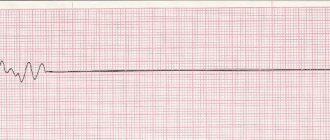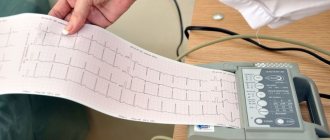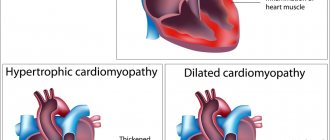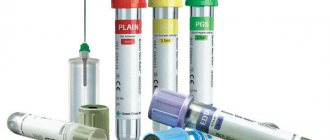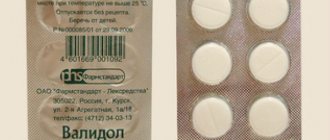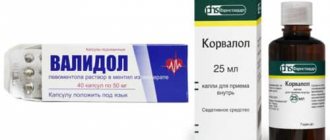When aching pain in a tooth appears, a person is simply unable to think about anything else, because this is one of the most unpleasant sensations. Moreover, it often happens that the pain begins at night or at times when dental care is not available (at the dacha, on a trip, etc.), and it is not possible to immediately see a doctor for treatment. Why does pain occur, and how to soothe an aching tooth before visiting the dentist?
What does Validol consist of and how does it work?
The basis of the medicine under a name familiar to everyone is menthol; this substance is synthesized or isolated from peppermint essential oil. Validol also contains liquid extracted from the root of medicinal valerian.
Mint leaves are the raw material for the production of Validol
Thanks to the main component Validol:
- dilates blood vessels, eliminating spasms - temporary contraction of the muscles of the vascular walls, causing a narrowing of the lumen;
- has a sedative (calming) effect;
- has a weak analgesic effect.
Once in the mouth, menthol oil interacts with the nerve receptors of the mucous membrane; the result is the release of hormones (for example, endorphin) into the blood, which regulate the permeability of the vascular walls.
Validol first appeared on the shelves of German pharmacies at the end of the 19th century; three decades later, the medicine was ousted from the German pharmaceutical market by more successful competitors and the drug was forgotten. Surprisingly, after some time, Validol appeared in the USSR and for decades became one of the leaders among drugs for heart pain.
Validol, of course, is not a fighter against serious illnesses; A herbal medicine is capable of moderate vasodilation for a limited period. Unfortunately, Validol does not reduce the risk of a heart attack.
A proven remedy is used when it is necessary to alleviate symptoms:
- angina pectoris - a pathology in which due to vascular spasm, not enough oxygen reaches the heart; accompanied by chest pain;
- cardialgia - pain in the heart area, which is a sign of diseases that are sometimes not related to the condition of the heart (intercostal neuralgia);
- hysteria - a mental disorder accompanied by muscle spasms;
- neurosis - a psychological disorder of a reversible nature, often having consequences in the form of vascular spasms (including the brain);
- sea sickness, as well as air sickness, in which unlucky travelers feel sick and vomit - that is, the so-called motion sickness syndrome is evident.
Dosage forms of Validol
The drug is available in three forms:
- lozenges that are placed under the tongue; additional substances - sucrose and magnesium stearate;
- sublingual gelatin capsules filled with an oily liquid with a menthol flavor; the main component is a solution of levomenthol (a type of menthol); among the auxiliary ones - glycerol;
One of the dosage forms of Validol is transparent gelatin capsules - drops that are taken orally; It is an oily solution with a strong menthol odor.
The tablet or capsule is placed under the tongue and waited for the product to dissolve until it disappears completely . The liquid is dripped onto a piece of sugar; then sugar is also placed under the tongue for resorption.
Types of drug
In addition to the usual Validol, there are two more types of products - with glucose and isomalt.
Table: varieties of Validol
| Name | What does it consist of, release form | How it works |
| Validol with glucose | Active ingredients: levomenthol and dextrose (glucose); additional - calcium stearate, sucrose; Available in lozenges. | Glucose in Validol helps the levomenthol molecules break down faster in the oral cavity - increases cell activity and speeds up metabolism. Completely absorbed in the body. |
| Validol with isomalt | The main substance is a solution of levomenthol; auxiliary:
Sold as sublingual tablets. | The product does not contain sugar, so this Validol is useful for those who suffer from diabetes; Isomalt is a natural sugar substitute that does not contain the glucose enzyme. |
How to soothe an aching tooth?
If aching pain inside a tooth or after the removal of a wisdom tooth prevents you from sleeping peacefully or generally thinking about anything else, you need to take care to reduce it to a minimum. And at the first opportunity, be sure to consult a dentist, because pain relief does not mean that the problem has been eliminated, and there is no need for treatment. You can eliminate pain as follows:
- First of all, thoroughly brush your teeth and remove any remaining food from the interdental spaces.
- Rinse your mouth with a soda-salt solution (a teaspoon of soda and salt per glass of warm boiled water). You can use only saline solution or just warm water if nothing else is available.
- Take a pain reliever (analgin, paracetamol, ibuprofen) if possible.
- If there are no medications at hand, you can relieve pain with folk remedies. Rinsing with decoctions of chamomile, calendula, sage, and calamus root helps to cope well with toothache. You can also use tampons soaked in clove, sea buckthorn or mint oil, which should be applied to the affected area. Rinsing with alcohol-containing liquids - propolis tincture, regular vodka or cognac (sweetened alcohol-containing drinks cannot be used for this purpose!) can help get rid of pain.
It is strictly not recommended to use warming procedures in this case - rinsing should be at approximately room temperature, warm compresses and heating pads should not be applied to the sore area. Heat only accelerates and intensifies the inflammatory process, which can provoke the rapid development of a purulent abscess and the spread of inflammation to nearby tissues.
Validol and pregnancy
It is curious that the instructions for the “classic” Validol do not mention pregnancy, including among the contraindications. It is logical to assume that in this case, the “heart” drug is allowed for expectant mothers without any reservations, both in the early and late stages. However, not all so simple.
Validol with isomalt is a relatively new remedy, and here the situation is different: the instructions warn that pregnant women should take the medicine as a last resort, when the possible benefit to the woman outweighs the potential threat to the baby in the womb. Probably, this remark should be followed when planning to open a package of Validol.
How does the drug affect the organisms of the mother and fetus?
Validol does not accumulate in the body; After absorption through the oral mucosa, substances from the drug are converted in the liver and excreted by the kidneys. The medicine, in principle, does not harm the development of the fetus. However, sometimes Validol affects the functioning of a woman’s organs, and therefore the course of pregnancy; In a number of situations, the health of the expectant mother is at risk .
So, the drug:
- is able to stimulate contraction of the uterine muscles - due to the presence of menthol oil in the composition; pathology increases the likelihood of miscarriage, so those expectant mothers who periodically hear the words “increased uterine tone”, “hypertonicity” addressed to them by a gynecologist, are better off refusing Validol therapy;
- reduces blood pressure - due to the expansion of the lumen in the vessels, blood flow is enlivened, blood supply to organs is improved; but for patients with low blood pressure, Validol will harm, aggravating the malaise;
Lethargy and a feeling of weakness accompany expectant mothers with low blood pressure; Validol in such conditions will only worsen the condition - aggravates allergies; the drug “pushes” the production of histamine, a substance that provokes the body’s reaction to threats, often imaginary; however, the medicine has this effect after long-term use.
Severe allergies in the mother are dangerous for the fetus - especially in the 1st trimester, when there is still no placental barrier that retains antigens.
Which variety of Validol should the expectant mother prefer?
The most common form of Validol is tablets. But they contain sucrose, so gelatin capsules are more suitable for pregnant women with diabetes.
Validol drops are undesirable for pregnant women - the product is used together with a lump of sugar; Excess sugar negatively affects the functioning of organs, which already work under overload during pregnancy. For diabetic mothers, it’s better not to look at the drops at all - just like Validol with glucose.
The version of the drug with isomalt, like capsules, can be considered optimal for pregnant women; the manufacturer also emphasizes that the product is hypoallergenic - in fact, histamine is not listed among the substances whose production is stimulated by Validol with isomalt .
Indications for taking the medicine
Pregnancy is a time of increased stress on the heart; in the female body, the volume of blood circulating through the vessels increases, a third circle of blood circulation appears (uteroplacental), the task of which is to provide the growing fetus with useful substances and oxygen supplied with the blood. Month after month, the baby increases in size, which is why the uterus puts pressure on neighboring organs, pinches blood vessels, impeding blood flow.
Mechanical compression of the diaphragm, as well as the pulmonary artery, causes pain in the heart. This condition is, in principle, not dangerous to health, but when slight tingling in the heart area or heaviness in the chest turns into severe pain, swelling, shortness of breath, it is time to seek medical help. Validol will relieve discomfort and temporarily ease the work of the heart, however, with pathological changes in the body, other means are needed .
The expectant mother's heart is under increased stress, so pain on the left side of the chest is a common occurrence during pregnancy.
A pregnant woman, due to “hormonal storms” in her body, is prone to panic, stress, and often gets nervous with or without reason. Validol, whose main task is to calm, is designed to help you temporarily find peace of mind and fall asleep after a busy day. Taking a pill once will not harm; It is dangerous to become addicted to the drug, when without the drug the nerves can no longer be tamed .
Anxiety, resentment, tears are faithful companions of pregnant women; Validol will calm a woman, the main thing is to limit yourself to one tablet
Whatever the purpose for which you need Validol, taking the product without consulting a doctor is a rash step; It is better for pregnant women to do without medications at all; the question of the advisability of taking them is decided by the doctor. It takes into account:
- How does gestation go?
- severity of the disease;
- risk of allergy to the drug;
- trimester of pregnancy.
Validol for different periods
The early period of pregnancy is marked by the formation of organs in the fetus; in the 1st trimester, competent doctors do not advise using medications unless absolutely necessary, even those allowed for expectant mothers, so that the laying of organs goes smoothly.
Later, drugs are prescribed with caution to pregnant women, since the placenta appears, protecting the baby from negative factors, including drugs. But from the 36th week the use of medications must be stopped; the same Validol increases the tone of the uterus, which means it can sometimes cause premature birth .
When planning to undergo treatment with Validol, a woman should take into account the following details:
- the medicine is often used to escape toxicosis, which torments pregnant women in the early stages; a number of doctors are skeptical about the properties of the drug to relieve nausea and vomiting, not excluding the possibility that the “healing” effect of Validol is the result of self-hypnosis; Think a hundred times before taking pills in the 1st trimester;
Toxicosis complicates pregnancy, but the question of the benefits of Validol for such a disease is controversial - the risk of increased uterine tone appears in both early and late stages; you can use Validol only if you are sure that the reproductive organ is normal;
- you should not take the medicine regularly; If you are nervous, try to calm down first without Validol.
Many doctors avoid recommending Validol to patients, considering the drug to be outdated, something like an ordinary mint candy . About five years ago there were plans to remove medicine from pharmacies altogether, but they never decided to do so; Validol is still confidently among the sales leaders.
In a number of European Union countries, as well as in the United States, Validol cannot be found in pharmacies, since Western doctors consider the drug to be of unproven effectiveness.
Features of taking the medicine
Dosage is an important point when it comes to Validol; Using the drug in strictly recommended quantities, the expectant mother will reduce the risk of adverse reactions and ensure the effectiveness of the drug.
According to the instructions, Validol is taken no more than 2-3 times a day, one tablet; As for the liquid form of the medicine, the daily dose is 24 drops (usually divided into 4 times). However, pregnant women should be guided not by the instructions, but by the doctor’s prescription, who will most likely reduce the dosage.
A course of taking Validol is unlikely to be suitable for a pregnant woman - in most cases, one or two tablets are enough to relieve heart pain.
Once under the tongue, Validol begins to act within 3-5 minutes. If ten minutes pass and the effect is zero, the drug turned out to be useless - and this happens; This means that the patient requires other treatment.
Contraindications, adverse reactions
The instructions give the only prohibition on the use of Validol - hypersensitivity to the components of the drug. Forms containing sugar should be prescribed with caution to patients with diabetes mellitus.
Among the negative reactions of the body to the drug are:
- dizziness;
- nausea;
- increased tearfulness.
It is unlikely that a “side effect” will appear after a single Validol tablet, but it is certainly not possible to avoid a deterioration in well-being in the event of an overdose. By abusing Validol, in addition you will receive:
- drop in blood pressure;
- nervous overexcitation;
- malfunction of the central nervous system;
- cardiac dysfunction.
How Validol interacts with other drugs
The drug is “friendly” to other medications and does not interfere with their action in the body. As a rule, Validol can be combined with other medications without any problems .
Taking products containing nitrates is sometimes accompanied by a headache. Validol, when used simultaneously with nitrates, will reduce pain.
However, it is better not to use the “heart remedy” together with drugs that depress the nervous system; Validol will enhance the effect of the latter, which is undesirable.
What causes aching pain in a tooth?
The main causes of pain are:
- Infectious lesions of dental units: caries, pulpitis, periodontitis. Even in the later stages, these diseases may not give a clearly defined clinical picture and may only manifest as persistent aching pain inside the tooth when exposed to any irritant.
- Too thin enamel layer, cracks and chips in the enamel.
- Periodontitis. In some cases, gum inflammation is accompanied by throbbing toothache.
- Treatment or tooth extraction. Aching pain often appears after the removal of a wisdom tooth or any other tooth - this is a normal reaction to the operation, and usually the painful sensations gradually go away on their own after a few days. Also, aching pain in the tooth often occurs after removal of the nerve - this is a common reaction of the body to treatment and does not require special therapy.
How can an expectant mother replace Validol?
The secret of the drug’s success on the Russian market is not a secret at all: anyone who is familiar with Validol will, without hesitation, list the advantages of the drug:
- low price - Validol can be bought in capital pharmacies for 4 rubles;
- a small number of contraindications and adverse reactions;
- available in every pharmacy;
- a veteran of the Russian pharmaceutical industry with a strong reputation.
Validol has a lot of analogues, but not all of them are approved for pregnant women; for example, the popular Valocordin and Persen are contraindicated for expectant mothers . If you need to replace Validol, first of all consult your doctor: the doctor will select a relatively safe analogue, as well as the dosage.
There are no substitutes equal to Validol in terms of cheapness and availability.
Table: structural and functional analogues of Validol
| Drug name | What does it consist of, release form | Action in the body | Contraindications | Price in Moscow |
| Cormenthol | This is a drug synonymous with Validol, with the same active substance; added vitamin E and olive oil. Available in the form of gelatin capsules for resorption. | Dilates blood vessels, soothes, dulls pain. Taken for the same pathological conditions as Validol. |
Pregnant women can use Cormentol only in case of serious health threats. | From 120 rubles per package. |
| Glycine | The main component is glycine; auxiliary - cellulose, magnesium stearate. Sold in tablets that dissolve under the tongue. |
It is easily absorbed in the body, and at the same time does not accumulate in organs and tissues. | The only contraindication is Glycine intolerance. | From 24 rubles. |
| Pumpan | Homeopathic medicine contains:
Additional substances include lactose. Available in drops and tablets. | Pumpan is an adjuvant in the treatment of:
In addition, Pumpan reduces cholesterol levels and has a weak diuretic effect. | Allergy to substances contained in the drug; Since lactose is present, it is not advisable to use Pumpan for those who suffer from lactase deficiency. The instructions emphasize that expectant mothers can use Pumpan only with the permission of a doctor. | From 288 rubles. |
| Corvalol | Active ingredients:
Plus - caustic soda, peppermint oil. The forms of the drug are drops that are taken orally and tablets. | The combined agent has the following effect:
Corvalol is taken for tachycardia, cardiovascular pathologies, and nervous tension. The drug distracts attention and inhibits psychomotor reactions. | Drops should not be taken by those who cannot tolerate the substances in Corvalol, as well as by patients with kidney or liver pathologies. Corvalol is allowed for pregnant women in exceptional cases, only after the approval of a doctor. Tablets are contraindicated for pregnant women. | From 15 rubles. |
| Eltacin | Contains:
Additionally - cellulose, magnesium stearate. Sold as sublingual tablets. | A combined drug with amino acids that are responsible for metabolism in the body. Eltacin:
The drug also relieves the symptoms of chronic heart failure. | Allergy to Eltacin components. The instructions do not recommend using the drug for expectant mothers, since the effect on the body of the woman and the fetus has not been studied. | From 154 rubles. |
| Zelenin drops | Herbal remedy contains menthol, as well as tinctures:
Drops are taken orally. | A combined drug with a sedative and antispasmodic effect. Drops are used for:
It should be noted that belladonna, along with its therapeutic effect, provokes tachycardia, increases intraocular pressure, and impairs the visibility of objects nearby. |
There is not a word in the instructions about taking it during pregnancy (as is the case with Validol); It is better to refrain from using it or consult a doctor about the drops. | From 70 rubles. |
Photo gallery: Validol substitutes
Validol’s “relatives” such as Valerian and Motherwort tincture are also proven sedatives . Valerian tablets are even capable of dilating blood vessels, but only with long-term use, and this is precisely undesirable for pregnant women. Motherwort contains alcohol, which makes one wary of the drug. But when a woman needs to calm her frayed nerves, perhaps the doctor will not be against the careful use of both remedies, the instructions for which, by the way, do not include pregnancy among the contraindications.
Motherwort tincture will reduce agitation and calm; despite the fact that the herbal preparation has no contraindications at all, pregnant women should not drink motherwort without a doctor’s permission
Three-step algorithm for treating abdominal pain
Why painkillers don't help
Let's start with the simplest question: what should you do if discomfort appears in the abdominal area?
Of course, take a pill! For many of us, the answer is... "obvious." A person who cares “too much” about health, much less knows “more than necessary” about it, looks strange. From the point of view of many around him, he simply has nothing to do! The results are obvious: 45% of Russians, feeling pain in the stomach, grab analgesics... And only 28% take antispasmodics. Moreover, over the past six months, every sixth person felt pain in the abdominal area. Women are more often affected. Why is an analgesic dangerous for abdominal pain?
Because it will not eliminate the true cause of the unpleasant sensations, but will disguise it. Indeed, in 60% of cases the culprit of the pain syndrome is spasm.
What is a spasm?
This is an excessive contraction of smooth muscle cells in various organs. In our case we will talk about the digestive system. Inflammatory process - for example, gastritis, enteritis, colitis or ulcers, poisoning and other exposure to pathogenic microbes, a foreign body in the cavity of the digestive organ (a part from a toy in the stomach or a stone in the gall bladder), an imbalance of the substances we need - vitamins and microelements... Because of this, our organs, which are one way or another responsible for digesting food, feel uncomfortable and painfully contract. Analgesics do not act on the cause of the pain, and they will only affect the transmission of nerve impulses, and will not remove the spasm. Plus, as was said earlier, they will mask the pain - and the doctor will not understand anything. Or he will understand, but it’s too late. After all, the remaining 40% of abdominal pain - 4 cases out of 10 - are conditions in which you need to call an ambulance!
Acute pancreatitis, appendicitis, perforation of an ulcer, rupture of an aneurysm of blood vessels in the abdominal cavity, severe inflammatory diseases in women. Peritonitis is an inflammation of the peritoneum, which occurs not only when the appendix ruptures, but also when “treating” gynecological diseases through patience. A stone that has passed out of the gallbladder and blocked the bile duct. If you take an analgesic, it will be difficult for the doctor to understand where the cause of the illness is. And precious time when emergency surgery should have begun will be lost. The antispasmodic will not affect the sensations caused by acute cholecystitis, perforation of an ulcer or rupture of the appendix. The pain will not decrease.
What happens if you “treat” ordinary chronic gastritis with an analgesic?
Painkillers of this type are harmful to the gastric mucosa (and other digestive organs). If you take non-steroidal anti-inflammatory drugs for just a week, then one in five will have a stomach ulcer. And one in seventy will experience gastrointestinal bleeding. What if such patients also take analgesics to relieve pain? “Harmless and safe” drugs for pain relief have their side effects. Therefore, non-steroidal anti-inflammatory drugs and other analgesics should be taken under the supervision of a doctor! Turning them into daily medicine is dangerous. By the way, how long can you “treat yourself” with painkillers?
What to do if your stomach hurts?
In 2002, Vladimir Trofimovich Ivashkin, academician of the Russian Academy of Medical Sciences, chief gastroenterologist of Russia, director of the Clinic of Propaedeutics of Internal Diseases, Gastroenterology, Hepatology of the First Moscow State Medical University named after. THEM. Sechenov, developed a stepwise algorithm of actions for abdominal pain:
• Stage one – mild pain What to do: if necessary, take an antispasmodic. But: – if the pain occurred once, after unusual or poor-quality food, eating disorders or overeating, this is one situation. And if pain occurs with sufficient frequency, i.e. the stomach hurts sometimes or periodically, or in the morning, or after nervous stress, or even from hunger - the situation is completely different. Go to the doctor for an appointment as soon as possible!
• Stage two – the pain is quite severe and/or long-lasting. What to do: be sure to take an antispasmodic. After this, even if your stomach hurts less or the abdominal pain stops altogether, consult a doctor immediately!
• Stage three – very severe pain! Or pain that gets worse. If your stomach hurts unbearably, the cause could be those same 40% - appendicitis, rupture of the gallbladder, perforation of an ulcer, thrombosis of intestinal vessels. What to do: call an ambulance!
Five principles that are important for everyone to know
Abdominal pain is a special pain. Its nature is simply not taken into account by universal drugs for pain relief. And our compatriots, having encountered at least once a modern “optimized” clinic (according to Ministry of Health standards, there is one gastroenterologist per 70 thousand people), try to solve the problem by taking a pill. They will not be told why this is dangerous. After all, there are not enough doctors even for treatment, let alone for prevention and health schools. Therefore, the French manufacturer SANOFI organized a training program - “Pain that is dangerous to anesthetize” with the involvement of gastroenterologists in the educational project. Clinical pharmacologist, candidate of medical sciences, Alexander Maslyakov has developed another instruction for the patient - five principles of action for abdominal pain.
• Principle 1. One of the causes of abdominal pain is spasm, a contraction of the smooth muscles of the digestive organs under the influence of unfavorable factors. For this reason, medications that relieve pain are only first aid. Be sure to find out why your stomach hurts, i.e. what is the condition of the gastrointestinal tract, liver, gallbladder, pancreas and spleen.
• Principle 2. The first choice drug for abdominal pain is an antispasmodic. If you have a spasm of the smooth muscles of the stomach or intestines, you will feel less pain after taking the medicine. And in acute conditions that require urgent surgery, antispasmodics will not mask the pain, and the doctor will have time to understand what happened and how to act.
• Principle 3. For abdominal pain, analgesics are dangerous! They must not be used under any circumstances! A drug of this type will not eliminate the cause of pain - it will simply block the transmission of signals about problems in the body. The brain does not know about problems. Doctors won’t even know about them - after all, the pain sensations are masked, and it’s difficult to make a correct diagnosis.
• Principle 4. If an antispasmodic does not relieve pain within 2–3 hours, consult a doctor!
• Principle 5. If the abdominal pain is severe, if it increases or even simply does not decrease, if you have a high temperature, if your blood pressure is low, if you have nausea and/or vomiting, if you have a headache, call an ambulance immediately!
Be careful! Take care of yourself!
Link to publication: life24.ru
Reviews from women
Despite the fact that the medicinal properties of Validol are often questioned, the drug has not yet been forced out of pharmacies; expectant mothers who have problems with their hearts or nerves look at it. It would be useful to reinforce your confidence in Validol with the opinion of your attending physician, since the drug can complicate pregnancy. Take your medicine correctly; Don’t grab the pill whenever you’re nervous, first try to cope without the help of your “heart friend.” When you are pregnant, it is better not to be friends with medications.
A professional television journalist, she worked for many years as a special correspondent and commentator on federal television channels (VGTRK, TVC). Author of documentaries. I have awards, including state ones. In recent years, he has been the editor-in-chief of the private television company PUL. Rate this article: Share with friends!
